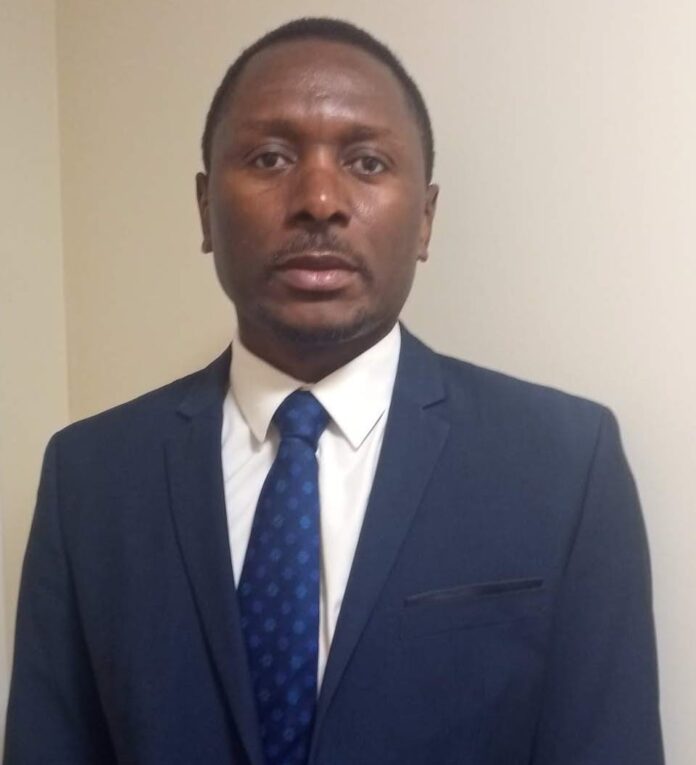OPINION
By Dave Manneh
President Adama Barrow’s national address on 14 May 2025 offered a predictable, yet fundamentally dishonest, response to the burgeoning scandal surrounding the criminal disposal of Yahya Jammeh’s forfeited assets. Gambians both at home and abroad exchanged knowing looks and network-mediated eyerolls. Numerous analyses have correctly identified the chasm between Barrow’s platitudes of transparency and accountability, and the stark reality of systemic failures and a deeply entrenched democratic deficit.
Despite the President’s lip service to public concern and his admission of “certain procedural failures,” his strategic framing and continued reliance on demonstrably compromised institutions confirm the ongoing elite capture that has strangled The Gambia’s democratic aspirations.
Barrow began by acknowledging the “national concern with reason,” a tacit admission of the outrage Gambians feel and continue to express. His attempt to sanitise the government’s actions by referencing the Janneh Commission and the subsequent Ministerial Taskforce aimed to project a veneer of order and due process.
The Janneh Commission itself faced widespread criticism, and the very existence of a regularly reporting Taskforce directly exposes the incredulity of the President’s subsequent claim that he learnt crucial details “for the first time.” This implausible attempt to evade responsibility further shreds public trust, already decimated by revelations that assets worth millions were pilfered for mere fractions of their true value.
There are allegations of a state official’s brother acquiring a Mercedes-Benz for next to nothing, and stories of the wealthy plundering tractors intended for farmers. Those are stark evidence of a profound betrayal of the Gambians.
The President admitted “certain procedural failures,” notably the premature sale of assets, a significant concession forced by public outcry. Yet his subsequent decision to entrust the investigation primarily to the National Assembly and the National Audit Office – institutions previously shown to be toothless against powerful interests – exposes a cynical manoeuvre to neuter any genuine accountability.
There is a corpus of opinion pieces with incisive analyses that have demonstrated that The Gambia’s formal democratic structures, while present, lack the power to challenge entrenched power networks. Therefore, by opting for these compromised bodies, rather than establishing an independent panel as he initially considered, guarantees the perpetuation of a system where “connections matter more than competence and loyalty trumps law.”
This strategic choice is not about a commitment to a robust, impartial investigation; it is a calculated effort to control the narrative and severely limit the scope of any inconvenient findings.
Barrow’s pledge to publicise the findings and enforce recommendations offers a sliver of false hope, overshadowed by the historical context of broken promises and the proven complicity of the very institutions that the state tasked with this crucial undertaking. The true test will not be his words, but the government’s non-existent political will to implement any findings that might implicate powerful figures within the administration and the elite class.
Given the documented periodic attempts to suppress the media, and the routine disregard for judicial rulings, any expectation of a self-dismantling of the current corrupt power structure is naive. Thus, Barrow’s pledge convinces only a tiny fraction of Gambians.
President Barrow’s call for calm and unity is the routine rhetoric of leaders seeking to quell justified public anger. Nonetheless, genuine calm and unity can only be built upon a bedrock of trust and accountability, qualities this scandal has destroyed.
The Gambian public, especially the younger generation who see the truth online, increasingly understands the chasm between democratic pronouncements and the grim reality of endemic corruption and elite impunity. As my young cousin, Isatou aptly stated to me last night, “We swapped a dictator for a democracy, but we’re still waiting for the democracy to deliver.”
That wait, under Barrow’s leadership, appears destined to continue unless young people like her raise their voices and demand change.
Ultimately, President Barrow’s address, far from offering a genuine path to resolution, represents a superficial attempt to placate a furious populace. By clinging to compromised institutions and offering carefully crafted message, the President prioritises political survival over the fundamental necessity of justice.
Until The Gambia tears down the mechanisms of elite capture through concrete, independent action, the aspiration for a truly accountable democracy will remain a cruel illusion, and the stolen assets will stand as enduring monuments to a transition betrayed from within.
The true measure of President Barrow’s legacy will not be his pronouncements, sincere or otherwise, but his failure to dismantle the system of privilege that has infected the very democratic institutions Gambians fought and died to establish.
Dave Manneh – Research Lead
Securing Futures: Land Rights Action Collaborative
Securing Futures: Land Rights Action Collaborative (SFLRAC) is a registered NGO-think tank hybrid based in The Gambia. Committed to empowering Kombo’s dispossessed land-owning communities, SFLRAC combines participatory action with rigorous research to secure ancestral land rights, advocate for equitable governance policies, protect cultural heritage, and advance sustainable development.
The views expressed in this article are the author’s own and do not necessarily reflect The Fatu Network’s editorial stance.




